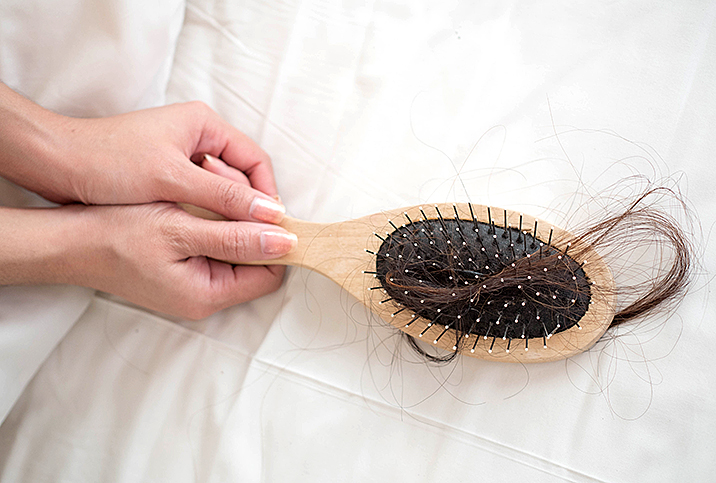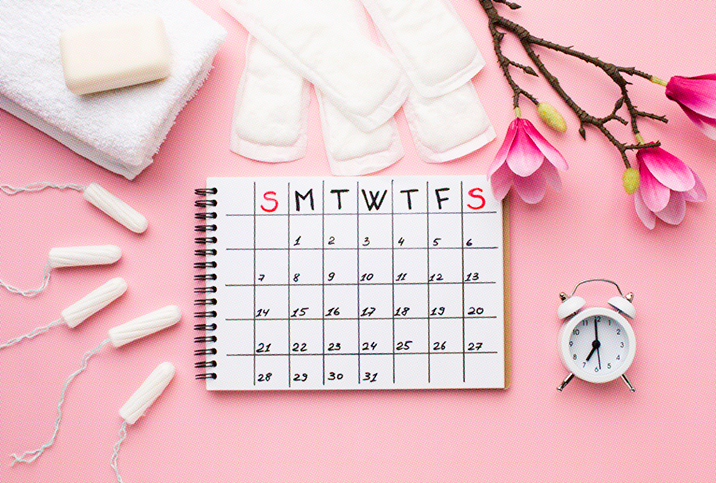Menopausal Hair Loss Is Common But Treatable

When Audrey Oquendo began balding, she was just 55 years old and it impacted her self-esteem.
The Manhattan resident, now 70, felt resentful at the time.
"A woman likes to have her hair," Oquendo said in an interview. "My hair is like a prize or crown on my head. It makes me feel beautiful to have hair. You don't feel beautiful anymore without hair. I used to envy women who still had a head full of hair.
"My hairline started receding right on the roots on the top of my head. It was falling out. I could see it in the brush. So, I stopped using a brush on my hair," Oquendo said.
Oquendo explored hormone pills but decided against it.
"When you have hormones, your hair and nails grow," she said. "But when the hormones go because of menopause, your nails and hair don't grow the same. I could have taken hormones, but you can't take hormones unless it's artificial and I didn't want that."
Instead, Oquendo went to a dermatologist, who began injecting her scalp with hormones every four to six weeks and issued a prescription for Dutasteride, a urinary retention medication often used to treat pattern baldness. Her hair has been slowly growing back ever since.
"I feel better about myself and more confident that I'm not losing hair," she said.
Oquendo is among the 40 percent of women who begin experiencing hair thinning or loss in their 50s at the onset of menopause, according to a review in Skin Therapy Letter.
Why menopausal women suffer hair loss
The hormones estrogen and progesterone encourage hair to grow and stay on the head. When those hormones drop during menopause, hair will grow slower and thinner. A decrease in estrogen and progesterone also triggers an increase in androgen production (the male hormone). Androgens cause hair follicles to shrink, causing the hair to fall out at a faster rate.
"There are multiple factors operating during the transition to menopause, all of which seem to favor more androgen in the bloodstream or more being delivered to the skin," confirmed Nanette Santoro, M.D., a researcher, professor and E Stewart Taylor Chair of Ob/Gyn at University of Colorado School of Medicine. "These androgens cause an increase in body hair and a decrease in head hair."
While hair loss during menopause is most often associated with hormonal imbalance, it can also be triggered by nutrient deficiencies or high levels of stress.
"[Hair loss] can be very distressing," Santoro said. "Most women have a gradual loss of hair that progresses over time to the development of bald spots or overall hair thinning."
Treating menopausal hair loss
Oquendo treated her hair loss with hormonal scalp injections, but there are many options available.
"Typical first-line treatments for the common cause of menopause-related hair loss are minoxidil lotion applied directly to the head," Santoro said.
Certain medications can help as well. "Prescription drugs include ones that oppose androgen action at the level of the hair follicle in the skin, or by increasing liver metabolism of androgens," Santoro explained. "Spironolactone, a mild diuretic drug, has been shown to have some efficacy, and more potent androgen blockers, like finasteride or dutasteride, block the androgen receptors and can be used in more severe cases."
There are cases when balding is caused by other factors besides menopause.
"When there are bald spots that are not on the crown of the head, a dermatologist should be consulted because there are other causes of hair loss that are not menopause-related but are autoimmune-related, and these may require more sophisticated diagnostic tests and treatments," Santoro advised.
Hair regrowth is possible
If you're suffering from hair loss, talk to your doctor to find out if it's related to menopause and what you can do about it.
While Oquendo's aging head hair may never have the same thickness as it did in her 20s, she is pleased with the results of the treatment she has received.
"I don't care if I don't have a head full of hair or not," she said. "I'm content with not losing any more hair. It's been growing in little by little, and I am happy with that. I no longer have bald spots."


















